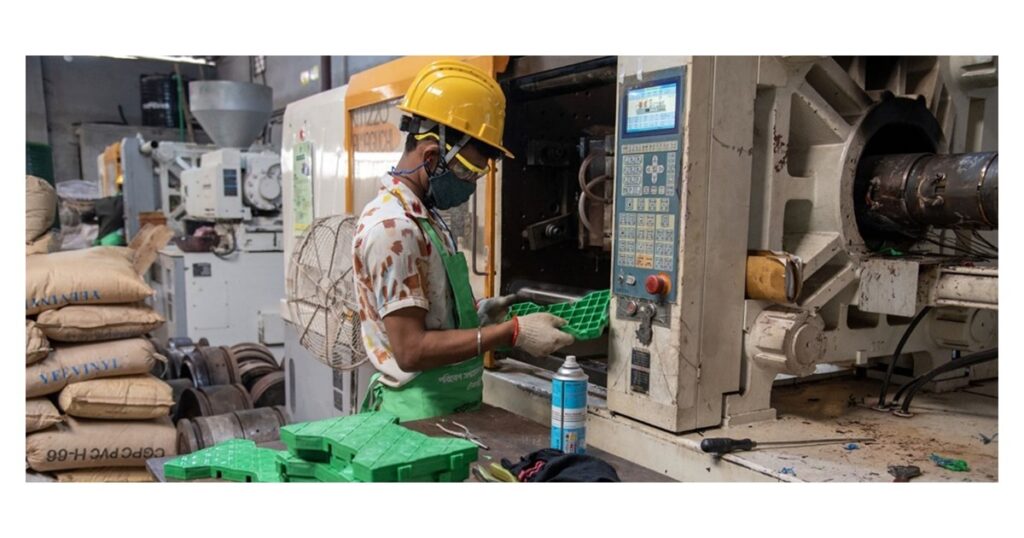In the last five decades, the world has seen a sharp increase in plastic use. Every year, about 8 million tons of plastic waste enter the ocean. Along with the rapid economic growth and urbanization in Bangladesh, the country witnessed a significant increase in plastic use. The World Bank’s latest Country Environmental Analysis (CEA) report finds that each person in Dhaka generates 22.5 kilograms of plastic waste annually. A large part of this waste is dumped in water bodies and rivers.
Plastic pollution not only causes air, water and soil contamination but also public health risks like the recent dengue outbreak through the clogging of drainage, and microplastic contamination in the food chain. In Bangladesh, addressing plastic pollution is as much an environmental urgency as a development and economic priority.
I am inspired to see that small business owners and micro-entrepreneurs like Popy, Nazir and Jashim are leading the way to recycle and reuse plastic. These #RecyclingHeroes are playing an important part to reduce plastic pollution in the country.
In Bangladesh, the plastic recycling industry consists mainly of small, informal businesses with very limited legal recognition and government oversight. They suffer from low collection rates and the informal nature of the recycling sector. In 2018, among the 3,000 plastics recycling facilities, only 200 were registered. The industry also experiences land and space constraints though the government is tackling the issue with initiatives such as the BSCIC Chemical Industrial Park aiming to relocate these clusters to the outskirts of Dhaka to provide better infrastructure.
Recycling centers in Old Dhaka
The recycling rate for plastics in Dhaka is 37 percent. Around 5,400 workers are engaged with plastic recycling sector. But they often are exposed to health and safety risks in absence of proper protocols. On the other hand, manual sorting and outdated technologies hinder the quality of recycled materials.
Despite the challenges, many micro-entrepreneurs could be changemakers. Poly Akhtar, a female entrepreneur, is one of them. She runs her own plastic recycling factory in Dhaka with four machines. Her factory makes and sells products made from recycled plastic, a true win-win for the environment and the economy.
She received training on environmentally friendly production processes, personal and environmental safety from the World Bank-financed Sustainable Enterprises Project (SEP), which helps microenterprises manufacturing and agribusiness sectors adopt cleaner technologies. She also received financial assistance from SEP to create a safe, productive workspace for her 25 employees.

